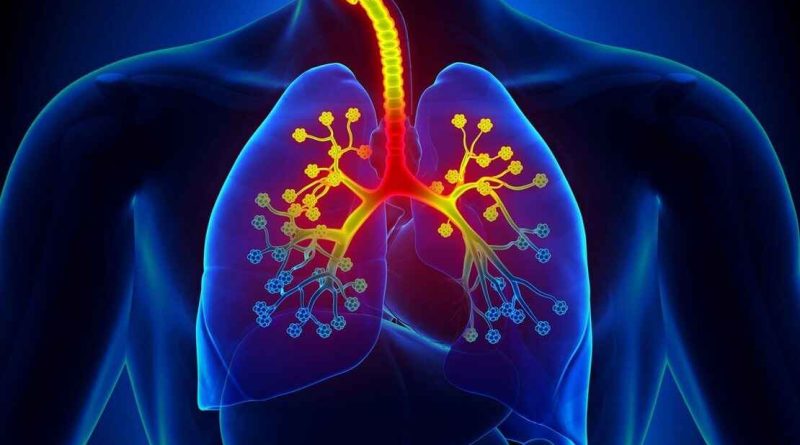Asthma: Types, Causes, Symptoms, Diagnosis, Treatment, Control
Overview
Chronic lung disease that affects people of all ages is asthma. Inflammation and muscle tightening around the airways are to blame, making it more difficult to breathe. Coughing, wheezing, shortness of breath, and tightness in the chest are all possible signs. These symptoms can appear and go over time, and they can be severe or mild. With the right treatment, asthma can be managed, despite its potential for seriousness. Asthma symptoms should be discussed with a medical professional.
What is asthma?
A common condition that affects your lungs’ airways is asthma. When asthmatics are exposed to triggers, their sensitive airways become inflamed. Breathing becomes difficult when the airways become inflamed. As a result, you may experience wheezing, coughing, or difficulty breathing. At times asthma can erupt and your side effects can turn out to be more terrible than expected — this is known as an asthma assault.
It may appear as though you are not breathing well during an asthma attack. It’s like breathing through a straw, according to some. It can happen quickly, like when you are exposed to smoke. It can likewise happen gradually over hours or days, like in the wake of getting a virus. A serious asthma discharge up needs earnest clinical consideration from a specialist or clinic crisis office. Even if your symptoms are usually mild or well controlled, you can still have an asthma attack. In the event that you have a serious asthma assault, look for care.
What kinds of asthma exist?
Depending on the nature of the condition and the severity of its symptoms, asthma can be classified into different types. Medical services suppliers recognize asthma as:
• Intermittent:
This kind of asthma comes and goes, allowing you to feel normal in between episodes.
• Persistent
Tireless asthma implies you have side effects a large part of the time. There are mild, moderate, and severe symptoms. The frequency with which you experience symptoms determines your asthma’s severity. They also think about how well you can react to an attack.
There are numerous causes of asthma:
• Hypersensitive:
Certain individuals’ sensitivities can cause an asthma assault. Mold, pollen, and pet dander are examples of allergens.
• Non-hypersensitive:
Outside variables can make asthma discharge up.Work out, stress, infection and weather patterns could cause a flare.
Additionally, there are the following kinds of asthma:
• Exercise-induced bronchospasm, also known as exercise-induced asthma, is a type of asthma that is brought on by exercise.
Occupational asthma:
People who work around irritating substances are more likely to suffer from this type of asthma. • ACOS, which stands for “asthma-COPD overlap syndrome,” is a condition in which a person has both asthma and COPD. Breathing becomes difficult with either disease.
Symptoms:
Asthma symptoms can differ from person to person. Sometimes, the symptoms get much worse. The term for this is an asthma attack. Side effects are in many cases more awful around evening time or during exercise. Normal side effects of asthma include:
- A diligent hack, particularly around evening time
- wheezing on exhalation and occasionally on inhalation
- difficulty breathing or shortness of breath, sometimes even while lying down
- tightness in the chest, making it hard to breathe deeply.
When they have a cold or when the weather changes, some people will have worse symptoms. Dust, smoke, fumes, grass and tree pollen, animal fur and feathers, strong soaps, and perfume are additional triggers. Other conditions can also contribute to symptoms. Individuals with side effects ought to converse with a medical care supplier.
Causes:
Although it can be challenging to pinpoint a single, underlying cause, many factors have been linked to an increased risk of developing asthma.
- Other family members, particularly a close relative like a parent or sibling, are more likely to have asthma.
- People who have other allergic conditions like eczema or rhinitis (hay fever) are more likely to get asthma.
- Asthma prevalence rises with urbanization, probably as a result of multiple lifestyle factors.
- Early life experiences can have an impact on the developing lungs and raise the risk of asthma. These incorporate low birth weight, rashness, openness to tobacco smoke and different wellsprings of air contamination, as well as viral respiratory diseases.
- A number of environmental allergens and irritants, including molds, indoor and outdoor air pollution, house dust mites, and occupational exposure to chemicals, fumes, or dust, are thought to increase asthma risk.
- Asthma is more likely to affect overweight or obese adults and children.
Asthma in childhood:
Asthma is the most well-known constant condition in kids. It can occur at any age, but children are slightly more likely to develop it. The following are some of the most frequent causes of asthma in children, according to the American Lung Association (ALA):
- Colds and respiratory infections
- Secondhand tobacco smoke, including cigarette smoke
- Allergens
- Indoor and outdoor air pollutants like ozone and particle pollution
- Openness to cold air
- Sudden temperature fluctuations
- Exhilaration
- Strain
- Work out
Asthma of adulthood?
Adult-onset asthma is frequently brought on by:
- Aversions
- Changes in hormones like pregnancy, menopause, and taking estrogen after menopause
- Colds and flu-like respiratory infections
- GERD, acid reflux, and heartburn
- Natural aggravations including smoke, form, dust, feather beds and scents Additionally, it is thought that as people get older, their immune systems become more sensitive, allowing for the emergence of new allergies. As people get older, asthma can become more serious. This is because adults frequently disregard or attribute asthma symptoms to other causes. Aging, obesity, or being overweight are examples of these factors.
Asthma contracted at work
is a kind of asthma brought about by taking in vapor, gases, dust or different substances while at work. These substances can set off an insusceptible framework reaction that changes how the lungs work. Word related asthma likewise is called business related asthma.
Diagnosis:
A person’s symptoms, family and personal medical history, and test results are frequently taken into consideration by a doctor. Based on the person’s triggers, the doctor will also note the type of asthma they have when making a diagnosis. It tends to be useful for an individual to keep a log of their side effects and potential triggers to assist the specialist with arriving at a precise finding. Information about potential irritants at home, in the workplace, or at school ought to be included in this.
Medication and Management
What kinds of treatments are available for asthma?
There are options for managing your asthma. To alleviate symptoms, your doctor may prescribe medication. These are some:
- Medicines called “bronchodilators” relax the muscles that surround your airways. The casual muscles let the aviation routes move air. They likewise let bodily fluid move all the more effectively through the aviation routes. For both intermittent and chronic asthma, these medications are used to treat symptoms as they arise.
- Medicines that reduce inflammation These medicines reduce airway swelling and production of mucus.
- They might be prescribed by your doctor to take every day to control or prevent your chronic asthma symptoms.
Biologic treatments for asthma:
These are utilized for serious asthma when side effects endure in spite of appropriate inhaler treatment. There are a variety of ways to take asthma medication. Using a nebulizer, metered-dose inhaler, or another type of asthma inhaler, you can inhale the medications. It’s possible that your doctor will give you medications to take by mouth.
What is asthma control?
- The treatment of asthma aims to reduce symptoms. Having asthma control means:
- Can would the things you like to accomplish at work and home.
- Have no or few asthma symptoms.
- You will rarely require your reliever medication (the rescue inhaler).
- You can sleep without having asthma disrupt your sleep.

